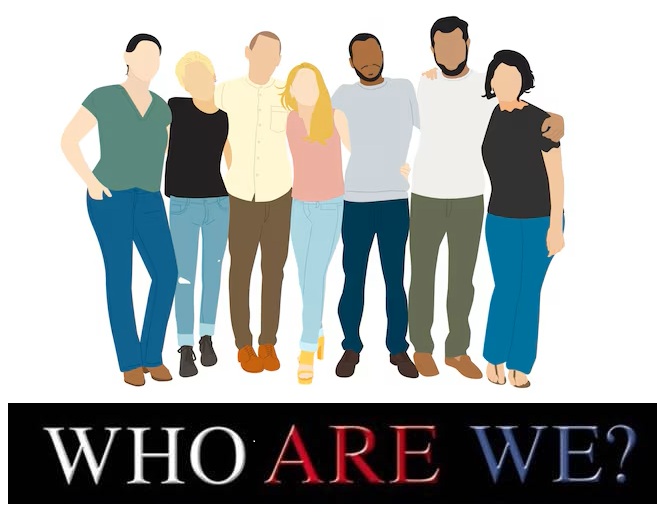MICRO-AGGRESSION:
Our Human Condition?
In these past few weeks, I learned about a new term
that speaks to our human condition, Micro-aggression. Micro-aggression, a word recently added to
the Merriam-Webster’s Dictionary in 2017 is a term that was unfamiliar to
me. Below is the definition of
micro-aggression from Webster’s dictionary.
a comment or action that subtly and often unconsciously or unintentionally expresses a prejudiced attitude toward a member of a marginalized group (such as a racial minority)
//A digital photo project run by a Fordham University student about "racial microaggressions" features minority students holding up signs with comments like "You're really pretty … for a dark-skin girl."— Jinnie Spiegler.
//There is a real and worthy conversation taking place in this country now, particularly among young people, around the idea of micro-aggressions—slight, often unintended discriminatory comments or behaviors.— Charles M. Blow
also : behavior or speech that is characterized by such comments or actions
//… argues that the power of micro-aggression lies in its invisibility to the perpetrator, who typically finds it difficult to believe that he or she possesses biased attitudes. — Emily Skop
As a Supervisor and Program Manager with eight
staff under me, I was encouraged to participate in a Webinar/Training that
would introduce me to micro-aggression and what this means in daily interactions
and communications. Dr. Derald Wing Sue,
who was the guest speaker of the Webinar and is the author of Micro-aggressions
in Everyday Life states micro aggressions are "brief, everyday exchanges that
send denigrating messages to certain individuals because of their group member”
and expressed in three basic forms; verbal,
non-verbal and environmental. Dr. Sue states
many of us are innocently unaware that our communication - what we say, how we
say it can contain double meanings which can be harmful, insensitive and
discriminatory – unintentional. We
become perpetrators of micro-aggressions.
Dr. Sue points out we need to acknowledge and accept that we are not
immune to conditioning of our environment, our culture and, if I might add,
society and the media. Everyone commits
micro-aggressions and we should not be on the defensive. We need to understand ourselves and that
micro-aggressions are just not a minority thing, they contain invalidations of
who we are as individuals reminding us of our status in society that greatly
impacts on education, employment, human rights and social injustices.
I have to admit, I did not grasp all I
learned from the webinar on micro-aggression.
I realized that I needed to do more research on the topic; it is a “new
concept.” I decided to buy Dr. Sue’s book,
Micro-aggressions in Everyday Life since this topic peaked my interest to learn
more. In fact, while looking for Dr.
Sue’s book online I came across another book, Micro-aggressions in Ministry:
Confronting the Hidden Violence of Everyday Church (Sanders & Yarber –
Westminster Press 2015). Dr. Sue
mentions that Micro-aggression stem from our “human condition;” our lived
experiences, “the experiential reality of marginalized groups in society.” Micro-aggressions is at the forefront and, it
is not quite “new under the sun;” its harmful impact is constant and continual
with no end date. Of course, as I see it
micro-aggressions will always be part of our “human condition.”
The Apostle Paul (Saul of Tarsus) wrote this to
believers (Christians) in Rome that believers are no better than non-believers;
“There is none righteous, no not one…there is none who does good, no not one…for
all have sinned and fall short of the glory of God” (Romans 3:9-10; 23). What Paul is saying, we are all sinners. The Greek word sin in the New Testament is “hamartia”
which literally means, “missing the mark, or to err.” I would have translated the passage in Romans
3 thusly, “…for all have offended and fall short of the glory of God.” We are all offenders. Sin is what corrupts our human nature
affecting our character, motives, thoughts, words, emotions
and behaviors; offending God and one another. When Adam and Eve offended against God, sin
became part of our human nature; micro-aggressions a part of our everyday
lives. Micro-aggressions are at the
forefront, always was.
Dr. Sue provided a brief advice on interventions:
1) Make the invisible visible – acknowledge micro-aggression; 2) Educate the perpetrator;
3) Disarm micro-aggression; and, 4) Seek outside support/authority. I would also want to add this in which Paul
shared with the Roman believers, “For what I am doing, I do not
understand. For what I will to do, that
I do not practice; but what I hate, that I do…for the good that I will to do, I
do not do; but the evil I will not to do that I practice…O wretched man that I
am! Who will deliver me form this body
of death? I thank God through Jesus
Christ our Lord” (Romans 7:15-16; 19 & 24).
What Paul is saying is that those things that he should not be doing, he
finds himself doing anyway and those things he should be doing he finds that he does not; a struggle familiar to most of us believers in Christ. Yes, Paul had his struggles and what he wrote
to the believers in Corinth was this, “Concerning this thing (his struggle) I
pleaded with the Lord three times that is might depart from me. And he said to me, ‘My grace is sufficient
for you, for my strength is made perfect in weakness” (2 Corinthians 12:8-9).
In conclusion, I am an “offender” who may
unintentionally “offend” others.
Although saved by God’s grace through Jesus Christ, I still live with my
sinful human nature; marred human condition that includes micro-aggressive
behaviors, not displayed intentionally.
Please forgive me, should I have offended you in any way; I did not nor
do I wish to do so. I will own my
micro-aggressive behaviors if one makes me aware of how they were interpreted
or perceived.





Comments
Post a Comment